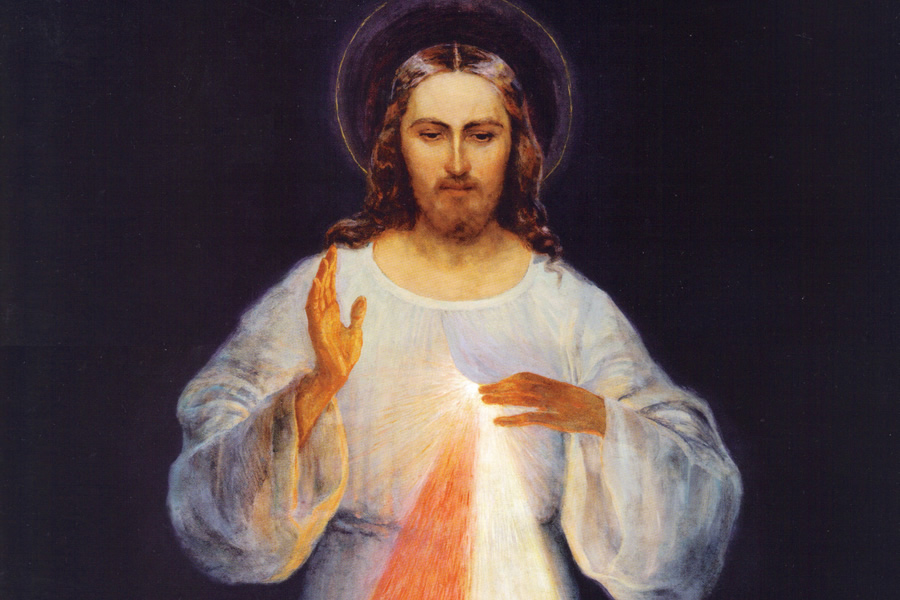
2nd Sunday of Easter: Divine Mercy Sunday: Jn 20:19-31
04-16-2023Weekly ReflectionFr. Bing ColasitoSt. John Paul II established the feast of the Divine Mercy during the Jubilee Year of 2000. It is a feast that the church desperately needs, as St. Faustina describes, the unconditional and unfathomable mercy of God. In this feast, Jesus revealed His wounded heart, manifested in divine mercy. Jesus invites us to see and feel this HEART in His risen life so we can be agents of His mercy to a wounded world. Let us not persist in our unbelief like Thomas and confess our faith: My Lord and God. Because Jesus praises those who have more FAITH: Blessed are those who have not seen and have believe.
The cenacle or upper room is the scene of the Gospel, where Jesus celebrated the last supper with His disciples. For the disciples, Jesus is dead. Fear got a good grip on their hearts; they locked the doors where they gathered for fear of the Jews. When we allow fear to dominate us, we tend to do the same, locking our doors, hiding, fearing, and in self-protecting mode. When fear increases, faith decreases, and vice versa. Giving in to fear is a sign that we do not trust God enough, who takes care of us more than we acknowledge it. We lock out God because of fear, a signal that He is not welcome - because we have locked it from the inside. But even with the lock, Jesus is deterred not by closed doors. He comes with a gift of peace. In the Gospel, Jesus appears and said: Peace be with you. Peace is a gift that the world cannot give; because we have failed to see His Mercy, which is the foundation of true and lasting peace. Jesus comes to the cenacle of fear and transforms it into an upper room of mercy brought about by His Divine Mercy.
The second appearance of Jesus to the disciples shows how Jesus extends His divine mercy beyond locked doors and hearts. The Apostles tried to evangelize Thomas about the risen Lord, that Jesus is alive. But it is always difficult to convince a person with a hardened heart. It is hard to bring people to faith if we force it on them - because faith is a personal decision. The great St. Thomas Aquinas said: To one who has faith - no explanation is necessary. To one without faith - no proof is possible. If we keep our faith, we keep our trust; we keep our right attitude; if we are grateful, then we will see God open new doors of opportunity for us. The key to faith and trust is a peaceful heart, but the foundation of this peace is His Divine Mercy.
Thankfully, God does not deal with man according to the law, intelligence, or our concept of justice, otherwise; no one is worthy. Thank God for His mercy, compassion, and love; all come from His heart, not His head. Thomas doubted the accounts of Jesus’ resurrection - Unless I see the mark of the nails in His hands, and put my fingers into the nail marks and put my hand into His side, I will not believe. It doesn’t help that modern man always asks for proof or a rational explanation about phenomena. If only we can learn to accept that faith is the knowledge within the heart that requires no shreds of evidence. May we overcome our fears and embrace His Divine Mercy; so that after we conquer our doubts, we can confess: My Lord and my God.
Let us open our hearts to the many expressions of Jesus’ Divine Mercy. Let us experience the Lord beyond what our minds can explain, beyond logic, principles, equations, and formulas. And let us seek the Lord with our heart, experience His love, and ever-presence in our journey to life. We thank the Lord for His unconditional Divine Mercy and LOVE.
BACK TO LIST